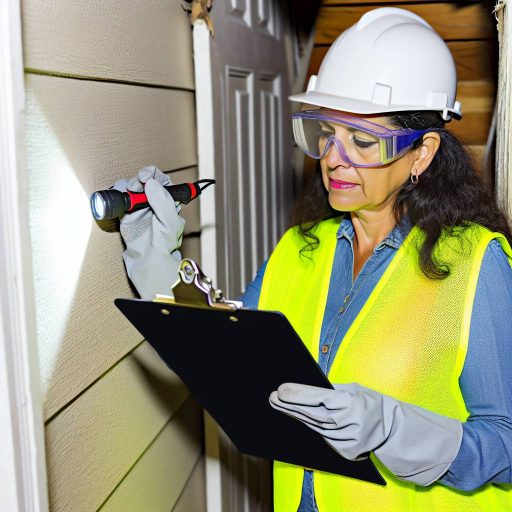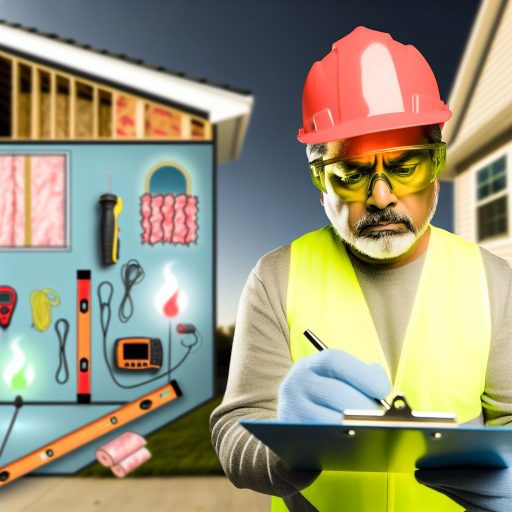Understanding the Costs of Homeownership: Beyond the Purchase Price
Initial Costs
When purchasing a home, initial costs add up quickly.
The down payment is often the largest upfront expense.
This amount typically ranges from 3% to 20% of the home’s price.
Closing costs are another critical aspect to consider.
These costs can include loan origination fees, appraisal fees, and title insurance.
Expect to pay 2% to 5% of the home’s price in closing costs.
Home inspections also play a vital role in the buying process.
It’s wise to budget for an inspection to uncover potential issues.
Ongoing Costs
Once you own a home, ongoing costs become a reality.
Property taxes will be a recurring expense every year.
Tax rates vary widely depending on your location.
Home insurance protects you against losses and damages.
It’s essential to factor in regular monthly premiums for coverage.
Additionally, homeowners association (HOA) fees may apply.
HOA fees help maintain common areas in organized communities.
Maintenance and Repair Costs
Homeownership comes with the responsibility of maintenance and repairs.
Regular upkeep is necessary to keep your home in good condition.
Budget for routine chores such as lawn care and pest control.
Set aside funds for unexpected repairs, like roof leaks or appliance failures.
Experts recommend saving 1% to 2% of your home’s value for these costs.
Utilities and Additional Expenses
Utilities can become a considerable monthly expense.
Electricity, water, gas, and internet services all add up.
Make sure to include these costs in your monthly budgeting plan.
Furthermore, consider the costs of any renovations or upgrades you want.
Investing in energy-efficient appliances can help save on utility bills.
Additionally, landscaping projects and improvements increase comfort.
Long-Term Financial Considerations
Finally, consider the long-term impact of your home purchase.
Owning a home can be a great investment over time.
However, market fluctuations may affect your home’s value.
Prepare for the possibility of declining property values in certain markets.
Plan for financial security by understanding your equity growth.
Home equity builds as you pay down your mortgage.
This increase in value will benefit you if you decide to sell later on.
Creating a Realistic Budget for Your First Home
Understanding Your Financial Landscape
Start by assessing your current financial situation.
Gather pay stubs, bank statements, and other financial documents.
Next, calculate your total monthly income.
Include all sources, such as bonuses or side jobs.
Identifying Monthly Expenses
Create a list of all monthly expenses.
Include fixed costs like rent and utilities.
Don’t forget variable expenses, including groceries and entertainment.
Track these costs for a month to get accurate figures.
Setting a Home Purchase Budget
Determine how much you can afford for a mortgage.
Use the 28/36 rule for guidelines.
This means spending no more than 28% of gross income on housing costs.
Additionally, ensure total debt does not exceed 36% of your income.
Considering Additional Costs
Factor in property taxes, insurance, and HOA fees.
These can significantly affect your monthly budget.
Also, account for maintenance and unexpected repairs.
Planning for Down Payment and Closing Costs
Save for a down payment, typically ranging from 3% to 20% of the home price.
Look for local programs that may assist first-time homebuyers.
Estimate closing costs, which usually range from 2% to 5% of the purchase price.
Building an Emergency Fund
An emergency fund is crucial for unexpected expenses.
Aim to save three to six months of living expenses.
This provides peace of mind during the home-buying process.
Reviewing and Adjusting Your Budget
Regularly review your budget as you get closer to purchasing a home.
Make adjustments based on changing financial situations.
Stay adaptable and flexible in your planning.
Building Your Credit Score: Tips for First-Time Buyers
Why Credit Score Matters
Your credit score plays a crucial role in home buying.
A higher score often leads to better mortgage rates.
Additionally, it increases your chances of loan approval.
Check Your Credit Report
Start by obtaining a copy of your credit report.
Review it for errors or inaccuracies.
Dispute any mistakes you find to improve your score.
Establish a Payment History
Pay your bills on time to build a solid payment history.
Set reminders or automate payments for convenience.
Late payments can significantly hurt your score.
Manage Your Credit Utilization
Keep your credit utilization ratio low.
Aim for using less than 30% of your available credit.
This shows lenders you use credit responsibly.
Limit New Credit Applications
Each new credit application can lower your score.
Limit applications, especially before buying a home.
Instead, focus on improving your existing credit accounts.
Use a Secure Credit Card
If you have poor credit, consider a secured credit card.
Make small purchases and pay them off monthly.
This can help rebuild your credit score over time.
Seek Professional Advice
If you’re unsure about your credit situation, seek help.
Credit counseling services can provide valuable guidance.
They can help you create a plan for financial improvement.
Uncover the Details: Home Inspection Checklist For Spotting Foundation Issues
Saving for a Down Payment: Strategies and Tips
Understanding Down Payment Requirements
A down payment is a percentage of your home’s purchase price.
Most lenders require a down payment between 3% and 20%.
However, larger down payments can lower your monthly mortgage payments.
Consider how much you can afford before starting the home-buying process.
Creating a Down Payment Savings Plan
Start by setting a specific savings goal based on your target home price.
Break your goal into smaller, manageable monthly amounts.
Open a dedicated savings account for this purpose.
This will help you track your progress and avoid spending the funds elsewhere.
Utilizing Budgeting Techniques
Create a detailed budget to understand your monthly expenses.
Identify areas where you can cut back on discretionary spending.
Consider using the 50/30/20 rule for budgeting.
- 50% of your income for needs.
- 30% for wants.
- 20% for savings and debt repayment.
Exploring Additional Income Sources
Boost your savings by finding additional income streams.
Consider taking on a part-time job or freelance work.
Sell items you no longer need around your home.
This extra cash can significantly contribute to your down payment fund.
Taking Advantage of Assistance Programs
Research local and national homebuyer assistance programs.
Some programs offer grants or low-interest loans for down payments.
First-time homebuyers may qualify for specific benefits as well.
This can ease your financial burden when purchasing your home.
Staying Disciplined and Motivated
Stay committed to your savings goals by tracking your progress regularly.
Make adjustments to your budget as necessary.
Celebrate small milestones along the way to keep motivated.
Ask family or friends for accountability to stay on track.
See Related Content: Home Inspection Checklist For Evaluating Plumbing Systems In Homes
Exploring Financing Options: Mortgages, FHA Loans, and More
Understanding Mortgages
A mortgage is a loan specifically for purchasing a home.
The home itself serves as collateral for the loan.
This makes mortgages a secure option for lenders.
Several types of mortgages exist, each with unique features.
Fixed-rate mortgages offer consistent monthly payments over time.
Adjustable-rate mortgages change rates based on market conditions.
Choosing the right mortgage type depends on your financial situation.
FHA Loans Explained
FHA loans are government-backed loans ideal for first-time buyers.
They allow lower down payments, sometimes as low as 3.5%.
Credit scores can be more lenient with FHA loans as well.
This makes homeownership accessible for many Americans.
VA Loans for Veterans
VA loans are exclusively for veterans and active military personnel.
These loans often require no down payment.
Additionally, they do not require private mortgage insurance (PMI).
This can result in significant long-term savings.
Conventional Loans and Their Benefits
Conventional loans are not insured by the government.
They typically require higher credit scores and larger down payments.
Borrowers should weigh the benefits and requirements carefully.
Conventional loans can offer competitive interest rates for qualified buyers.
Understanding Down Payments
Down payments are an essential part of obtaining any loan.
Most loans require a percentage of the home’s purchase price upfront.
Saving for a down payment can take time and planning.
Some programs offer assistance to first-time homebuyers.
Exploring Additional Financing Options
Home equity loans and lines of credit provide alternative financing options.
These allow homeowners to borrow against their existing equity.
Consider personal loans for smaller purchases related to home buying.
Evaluate each option to find the best fit for your financial goals.
See Related Content: Home Inspection Checklist For Identifying Electrical Problems
Understanding Closing Costs: What to Expect and How to Prepare
What Are Closing Costs?
Closing costs are fees associated with finalizing a real estate transaction.
These costs typically arise at the purchase of a home.
They encompass a variety of expenses that buyers should anticipate.
Typical Closing Costs
Closing costs can vary significantly based on location and lender.
Common fees include:
- Loan origination fees
- Title insurance
- Appraisal fees
- Inspection costs
- Escrow fees
- Recording fees
- Prepaid expenses, such as property taxes
How Much Are Closing Costs?
Generally, closing costs range from two to five percent of the loan amount.
For a $300,000 loan, this could mean costs between $6,000 and $15,000.
Thus, you should budget accordingly to cover these expenses.
Preparing for Closing Costs
Start by asking your lender for a good faith estimate.
This document outlines all anticipated closing costs.
Then, review it carefully and ask questions if needed.
Also, consider setting aside funds in a dedicated savings account.
Negotiating Closing Costs
Sometimes, buyers can negotiate with sellers regarding closing costs.
This could mean requesting the seller to cover part of the costs.
Additionally, some lenders may offer to reduce fees or provide credits.
When Are Closing Costs Due?
Closing costs are usually due at the closing of the sale.
Pay them on the day you finalize your mortgage paperwork.
Be prepared to pay via certified check or wire transfer.
Understanding Your Closing Disclosure
Review the Closing Disclosure thoroughly before closing.
This document provides a summary of all final costs.
Make sure it aligns with your earlier estimates.
If you have questions, clarify them before signing.
You Might Also Like: How To Save For A Down Payment As A First-Time Homebuyer In The USA

The Importance of Emergency Funds When Buying a Home
Understanding Emergency Funds
An emergency fund is a financial safety net.
It helps you handle unexpected expenses.
Having funds set aside is crucial when buying a home.
Unexpected costs may arise during the home-buying process.
Your emergency fund can prevent financial strain.
Why You Need an Emergency Fund
Emergency funds provide peace of mind.
They allow you to focus on your home purchase.
Additionally, they can help cover urgent repairs.
For instance, plumbing issues may occur suddenly.
A fund can alleviate financial anxiety in such situations.
How Much Should You Save?
Experts recommend saving three to six months’ worth of expenses.
This amount offers a substantial buffer against emergencies.
Consider your unique situation when determining the amount.
Evaluate your monthly expenses carefully.
Include mortgage payments, utilities, and groceries.
Building Your Emergency Fund
Start by setting a monthly savings goal.
Consistently contribute to your fund each month.
Automate transfers to your savings account where possible.
Additionally, cut unnecessary expenses to boost savings.
Consider using windfalls like tax refunds to accelerate growth.
Utilizing Your Emergency Fund
Use your emergency fund wisely during your home purchase.
Resist the urge to dip into it for non-urgent expenses.
However, don’t hesitate to use it for pressing repairs.
Funds should serve their intended purpose during emergencies.
Finally, aim to replenish your fund after usage.
Getting Pre-Approved for a Mortgage
Importance of Pre-Approval
Getting pre-approved for a mortgage is a crucial first step.
This process helps you understand your budget for buying a home.
It provides clarity on how much a lender is willing to loan you.
Moreover, it shows sellers that you are a serious buyer.
Steps to Obtain Pre-Approval
The first step is to check your credit score.
A higher score typically results in better loan terms.
Next, gather necessary financial documents.
Include pay stubs, bank statements, and tax returns.
After that, research potential lenders in your area.
Compare interest rates and fees from different institutions.
Then, submit your application to the lender of your choice.
Provide honest and accurate information throughout the process.
After your application is processed, await a decision.
If approved, you will receive a pre-approval letter.
Benefits of Getting Pre-Approved
Pre-approval offers you a clear budget for your home search.
You can confidently look at homes within your price range.
Additionally, it speeds up the home-buying process.
Having pre-approval gives you an advantage in negotiations.
Sellers prefer working with buyers who have pre-approval.
It reduces the chances of unexpected financial hurdles later.
Considering Additional Expenses
Understanding Maintenance Costs
Homeownership involves ongoing maintenance expenses.
These may include repairs, landscaping, and routine upkeep.
Typically, homeowners should budget at least 1% of the home value annually for maintenance.
Furthermore, saving for unexpected repairs is essential.
Having an emergency fund can ease financial stress when issues arise.
Homeowners Insurance Essentials
Homeowners insurance protects your investment against risks.
This insurance covers damages to your home and personal property.
Additionally, it also provides liability coverage if someone is injured on your property.
Costs vary based on the home’s location and value.
To save on premiums, consider bundling policies with the same insurer.
Navigating Property Taxes
Property taxes are another crucial expense for homeowners.
These taxes support local services such as schools and emergency services.
Property tax rates differ widely between states and municipalities.
To estimate your property tax, check with local tax assessors.
Staying informed about changes in property taxes can prevent surprises.
Additional Financial Considerations
Factor in costs such as homeowner association (HOA) fees.
HOA fees cover shared amenities and services in many communities.
Also, be aware of utility costs such as electricity, water, and gas.
Proper budgeting for these costs can provide financial peace of mind.
Finally, always review the total cost of homeownership before purchasing.
Additional Resources
Buying a Home | HUD.gov / U.S. Department of Housing and Urban …




